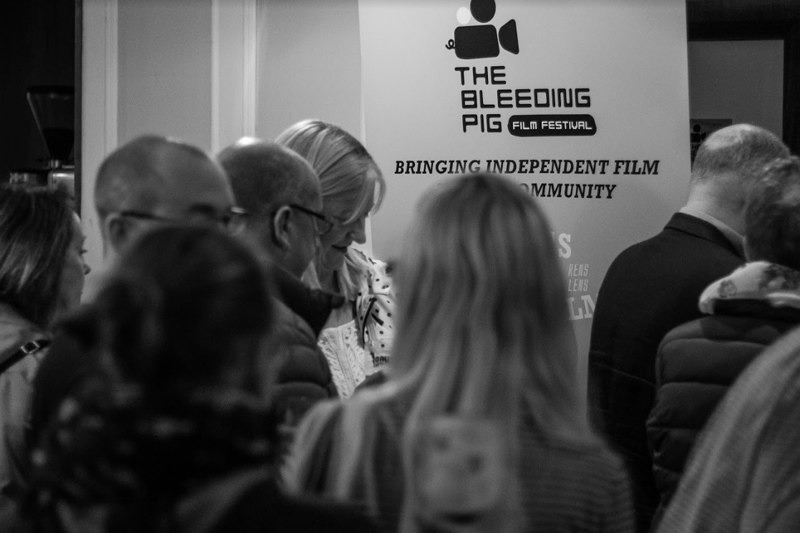The fourth incarnation of the Bleeding Pig Film Festival began on Monday, September 9th, screening a total of 17 short films, all but one of which are Irish, and one feature film.
The festival opened with the light-hearted Mary, a whimsical tale about an innocent adolescent’s public and private persecutions after he is falsely accused of breaking a statue of Mother Mary in the local graveyard. Though Mary had the crowd laughing, the film is inconsequential and unmemorable, and was about as satisfying as a meal consisting entirely of Holy Bread.
Fortunately, better films were to follow, such as the brilliant The Vasectomy Doctor which would go on to win the Bleeding Pig’s Overall Audience Award. The film is a canny and hilarious insight into the history of sexual politics in Ireland directed by Paul Webster.
The best films of the opening night tended to be similarly thought-provoking films. One, Lowtide, which enigmatically and elliptically tells the coming-of-age story of a young boy’s shattered innocence at the hands of his father. Other films such as Leap of Faith mixed Rear Window with sci-fi elements, and in doing so, proved that Irish cinema need not be restricted by genre.
The festival’s second night celebrated female filmmakers and opened with the straight-faced horror–comedy Mother, which depicts a family’s rejection of their mother as they realise that their newly purchased fridge can feed the children, play tennis with them and even sexually satisfy the father (“those drawers”, we hear him moan before catching him with his pants down and the fridge door open).
Night two also included two impressive short animations by Dun Laoghaire Institute Of Art Design and Technology graduates, The Usual by Eabha Bortolozzo and Jack Kirwan, as well as Tuna by Cliona Noonan. The Usual is animated to the words of John B Keane and Richard Burton and explores the highs and lows of alcohol and alcoholism. The film is a visual delight as we slowly watch the film itself becoming intoxicated on the possibilities of animation, as characters and scenes melt away, only to return swirling in hallucinogenic kaleidoscopes. Conversely, Noonan’s Tuna pulsates to the throes of a hypnotic electronic score and boasts a colour palette of pale reds, coral pinks and marine blues, lending the film an aesthetic of painterly deliberateness.
The Family Way, which won the Bleeding Pig’s Female Audience Award, is, like The Vasectomy Doctor before it, both humorous and socially engaged. The film follows a mother and daughter who, due to a pregnancy test mix-up, bond during their quest for more pregnancy tests in order to know for sure which one of them is actually pregnant. The film is a funny and touching exploration of sexual double-standards and of social standards which often implicitly judge women for getting pregnant at “too old” or “too young” an age.
The festival’s third night brought things to a close with the feature film Float Like A Butterfly, a film about the trials and tribulations of an Irish traveller family in the 1960s. The film takes its title from the famous Muhammad Ali quote, though the title and the film both forget the latter part of the quote: “Sting like a bee.” The film lacks a punch and is as drifting as the characters it follows. Its supposed stark realism fails to detract from its general sense of purposeless and I left the screening wondering what in God’s name could have been the initial germ to this thing.
Despite the festival’s limp ending, however, overall it was a tremendous success, demonstrating both the range and quality of independent, short filmmaking in Ireland. Watching attendees discuss these films with the attendant filmmakers after each night made me confident that Irish independent cinema will continue to flourish.







